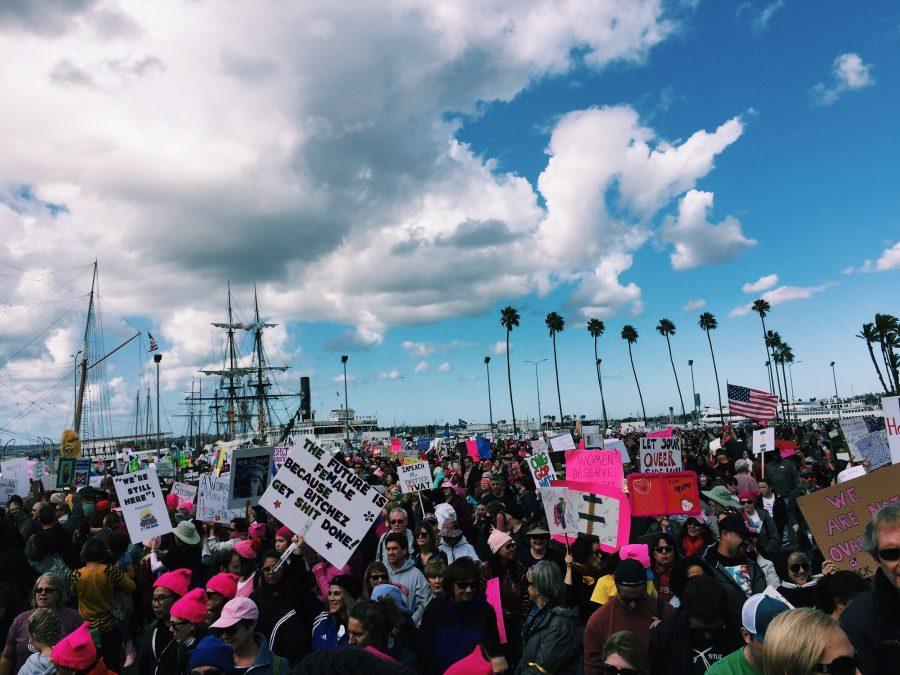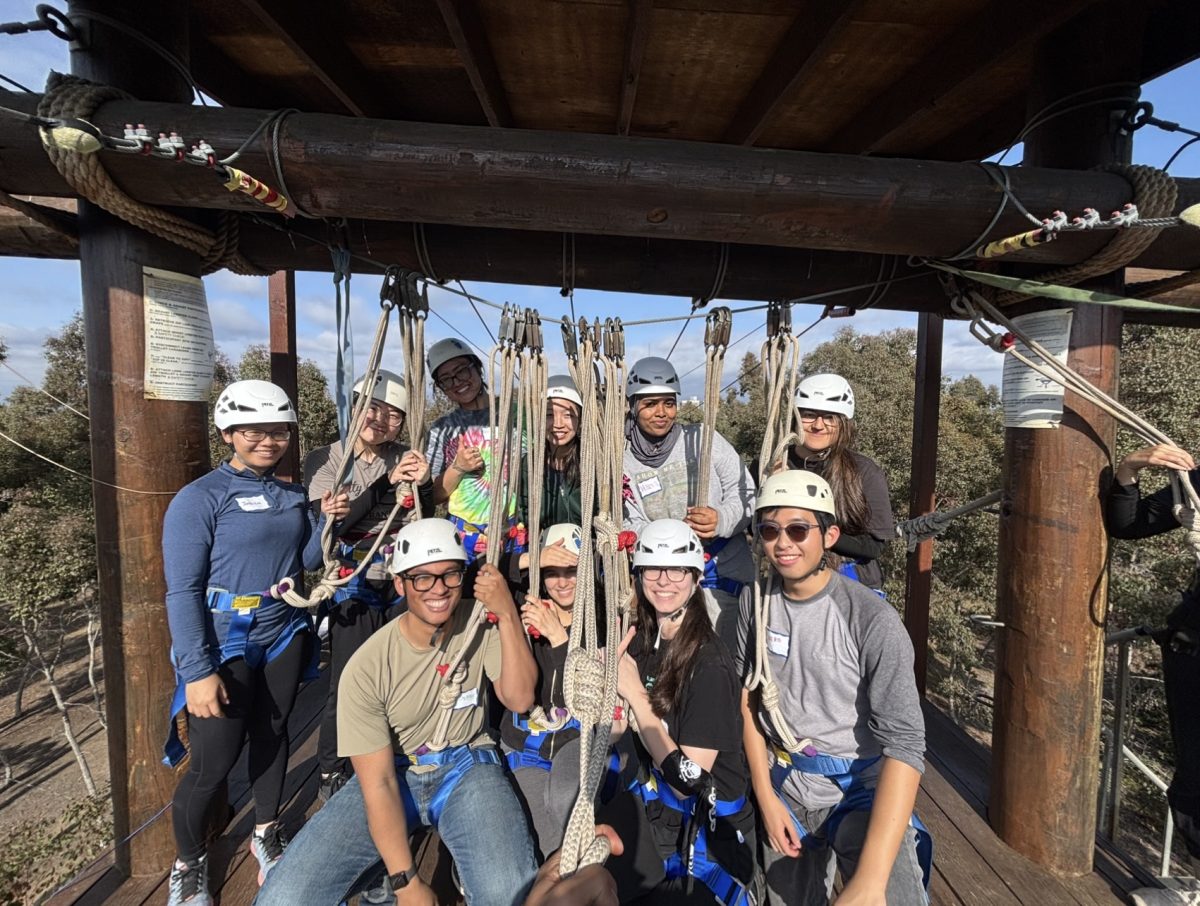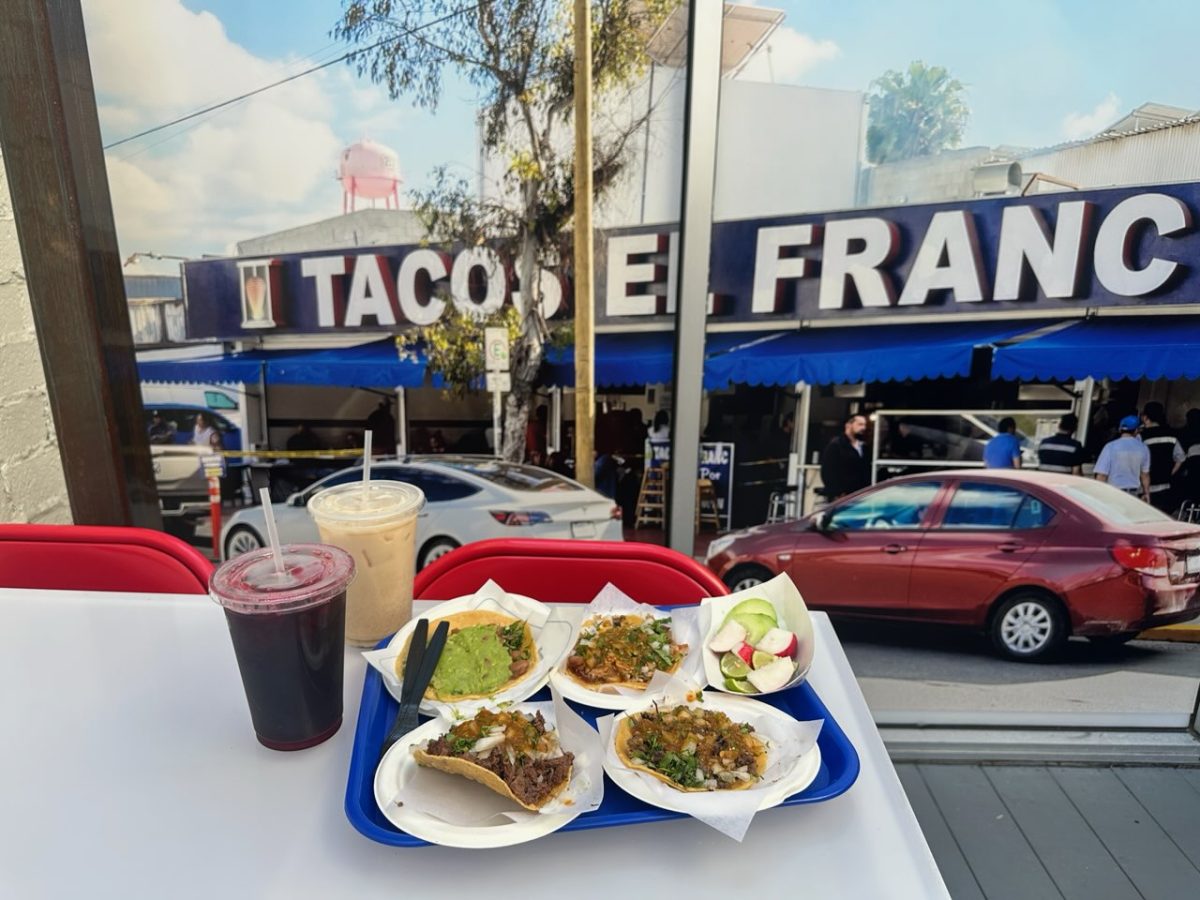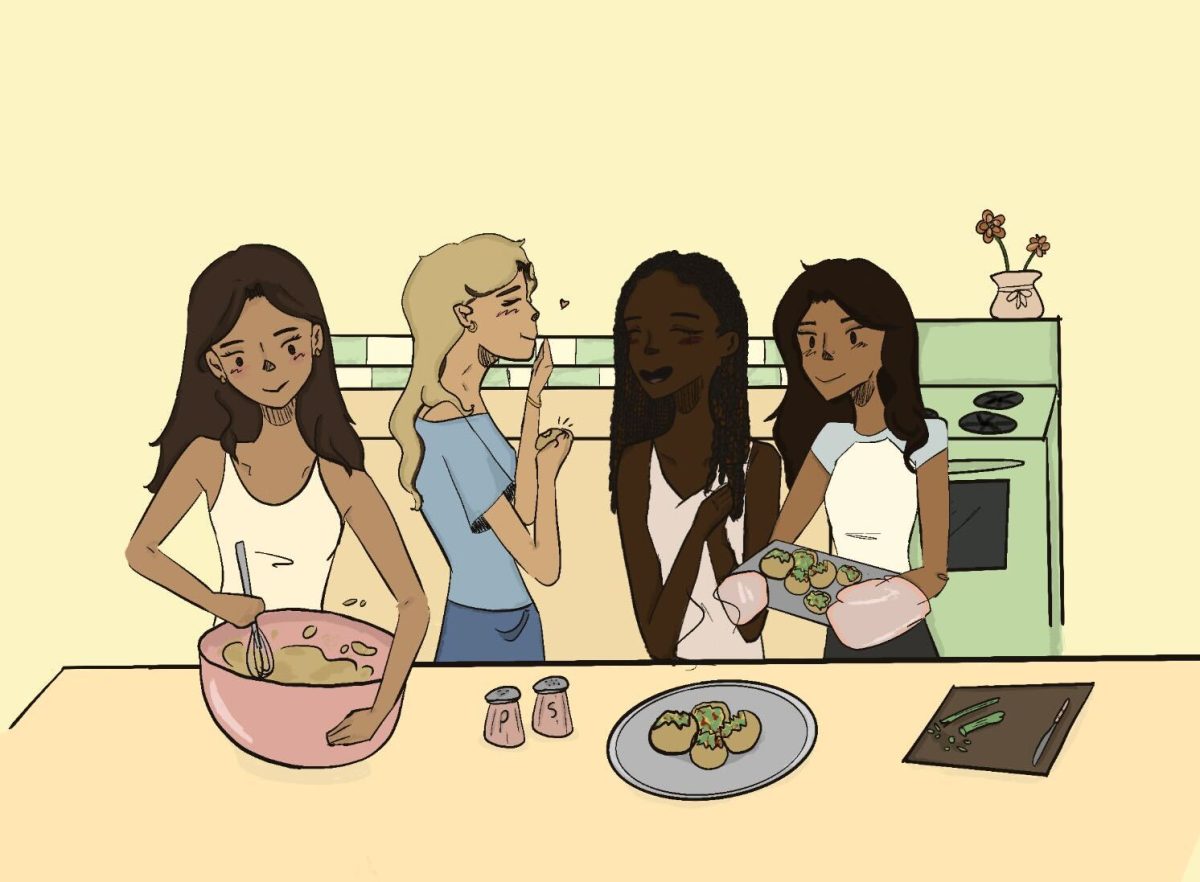On Jan. 20, we had the opportunity to attend the Women’s March in Downtown San Diego. While we both agree that it was an eye-opening experience, we internally faced some frustrations throughout the course of the morning, which stayed with us days after the march. In this piece, we aim to give a voice to the voices we thought were underrepresented at the march. We may make some provocative statements, but we wanted to strongly assert that we are not trying to undermine or belittle the experiences of other women. These are simply our stories. If you would like to continue the conversation, please reach out at [email protected].
Brittney Lu: How was the Women’s March for you? How would you describe the atmosphere?
Annika Olives: I thought it was very empowering and very inspiring, but I felt like I couldn’t fully identify with the stories told because my person wasn’t really represented. I’m Filipino, but a lot of the people speaking were of Latinx or African-American or Middle Eastern descent. I felt like I was marching for those women, which I want to do and I chose to do, but I felt like I also couldn’t march for myself.

BL: I can see where you’re coming from and feel similarly as a Chinese-American identifying person. I know there is a huge need for intersectional feminism, so to some extent, I felt a bit discouraged when they found an Asian-Pacific Island-identifying woman so last minute. I don’t want to undermine the power of having women of Black, Latinx, refugee, LGBTQ, Indigenous, among other identities speak up, but it did feel a bit personally frustrating, for lack of a better word, to feel unheard or unrepresented in a movement for intersectional feminism.
AO: As a young college student who is definitely still influenced by what I see, I feel like not seeing my race represented up there almost felt like we, as Asians, don’t matter as much. I thought it was very indicative of how our society still views Asian-Americans. The lack of intentional planning to include an Asian speaker is almost perpetuating the culture that Asians are meant to be passive.
BL: Bold statements my friend, but call it out. You know that phrase, “swallowing bitterness”? I feel like, in some sense, that’s happened again. I really believe that the Women’s March is meant for all women, and I believe in marching for all women, in hearing the stories of all women, no matter how they identify. But personally, it was a bit disheartening to feel like a narrative that represents East Asian American women was left unheard. Overall though, I don’t want that sentiment to overshadow the more empowering atmosphere the Women’s March can bring. It almost feels selfish in a way, you know?
AO: I understand where you’re coming from. It’s almost like, do I have the power to ask for my voice to be represented?
BL: Definitely, and I think that may tie in to not seeing many Asian-Americans in the crowd, which was personally frustrating, too. I feel like our community faces a double-edged sword of being silenced, and thus staying silent. But I feel like we have been silent for too long, like being silent with our own stories and for having a low turnout to something like the Women’s March to declare something like “Asian-Pacific Islanders for Black Lives.” But also, the demographics between those who marched — predominately white women — and those who spoke — women of color, women in the LGBTQ community, etc. — were interesting to witness. I don’t know about you, but I felt a small dissonance and tension there.
AO: I think one way to view it is that these women, those at the march, are our allies. These women maybe have a stronger voice in the world right now and the stronger influences, but they are the ones who are going to transport the information and experiences of the speakers to the higher-ups to get that change. At the same time, though, I feel like you can’t just march and expect everything to be different. The march is powerful, yes, but there needs to be steps to take real action.
BL: What next steps would you say we should take post-Women’s March? Especially as people who are students and have the privilege to vote?
AO: Voting is a huge responsibility that rests on our shoulders, especially as young citizens, and I feel like we should be doing everything we can to support and elect politicians who are going to work toward achieving equality. What about you?
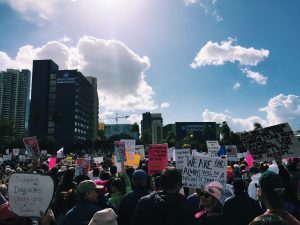
BL: I think as students who are trying to get our voices out there and going into career fields hoping to make a difference and be represented, we can do more in learning and listening to the stories and experiences of those who are different from us. And we can do more in engaging with the socio-political environment: learning who is running, what campaigns and initiatives they have, and how to be prepared for the upcoming midterm election. I think for those of us who are privileged to vote, we shouldn’t be taking that very lightly.
AO: That’s a good point. I think, at the end of the day, no matter what race or ethnicity we identify as, we should be taking those opportunities to make our city and our country a better place for women of all colors.
With that, please remember to register to vote in the upcoming midterm season! Link to registration site: http://www.sdvote.com/content/rov/en/Registration.html


